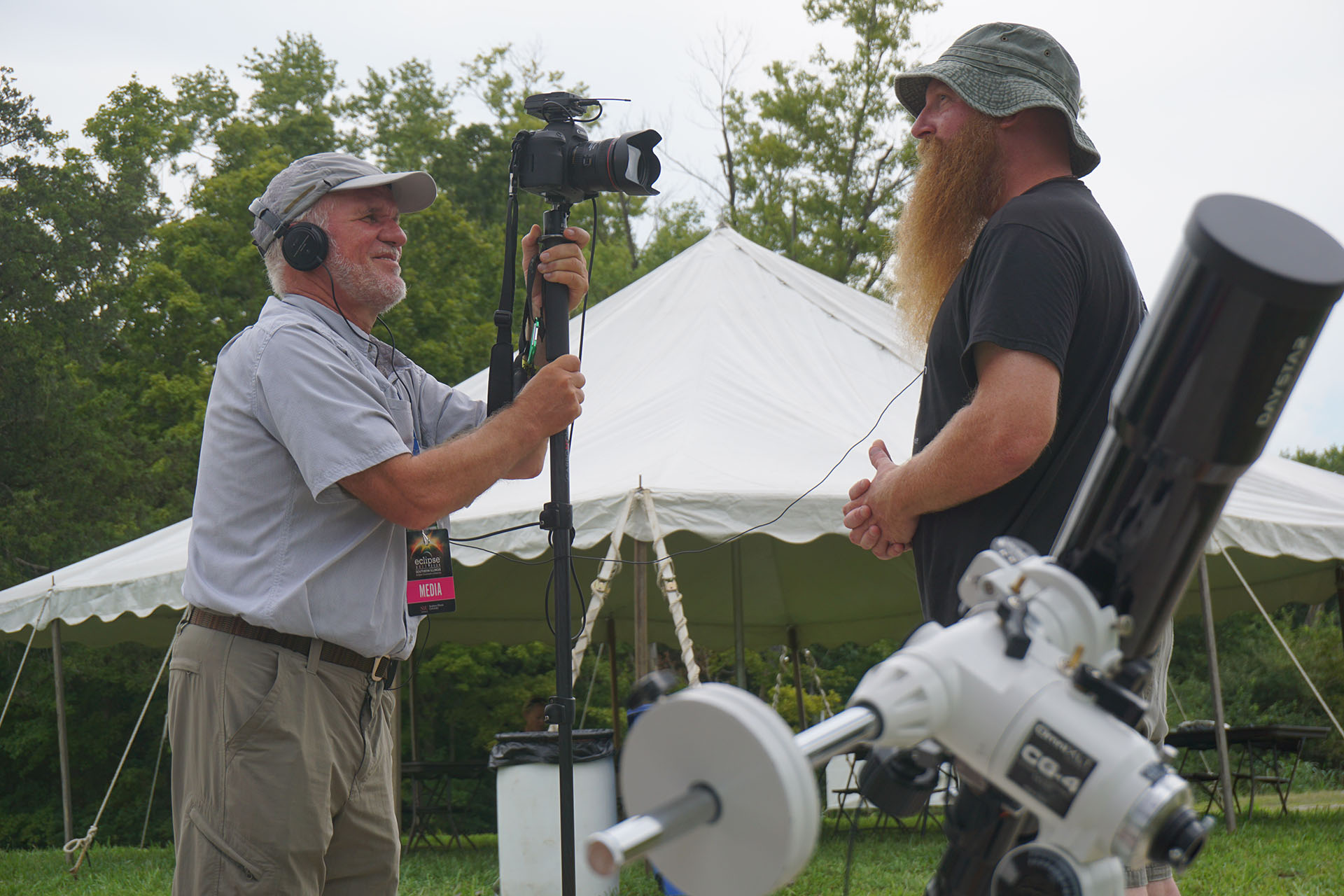
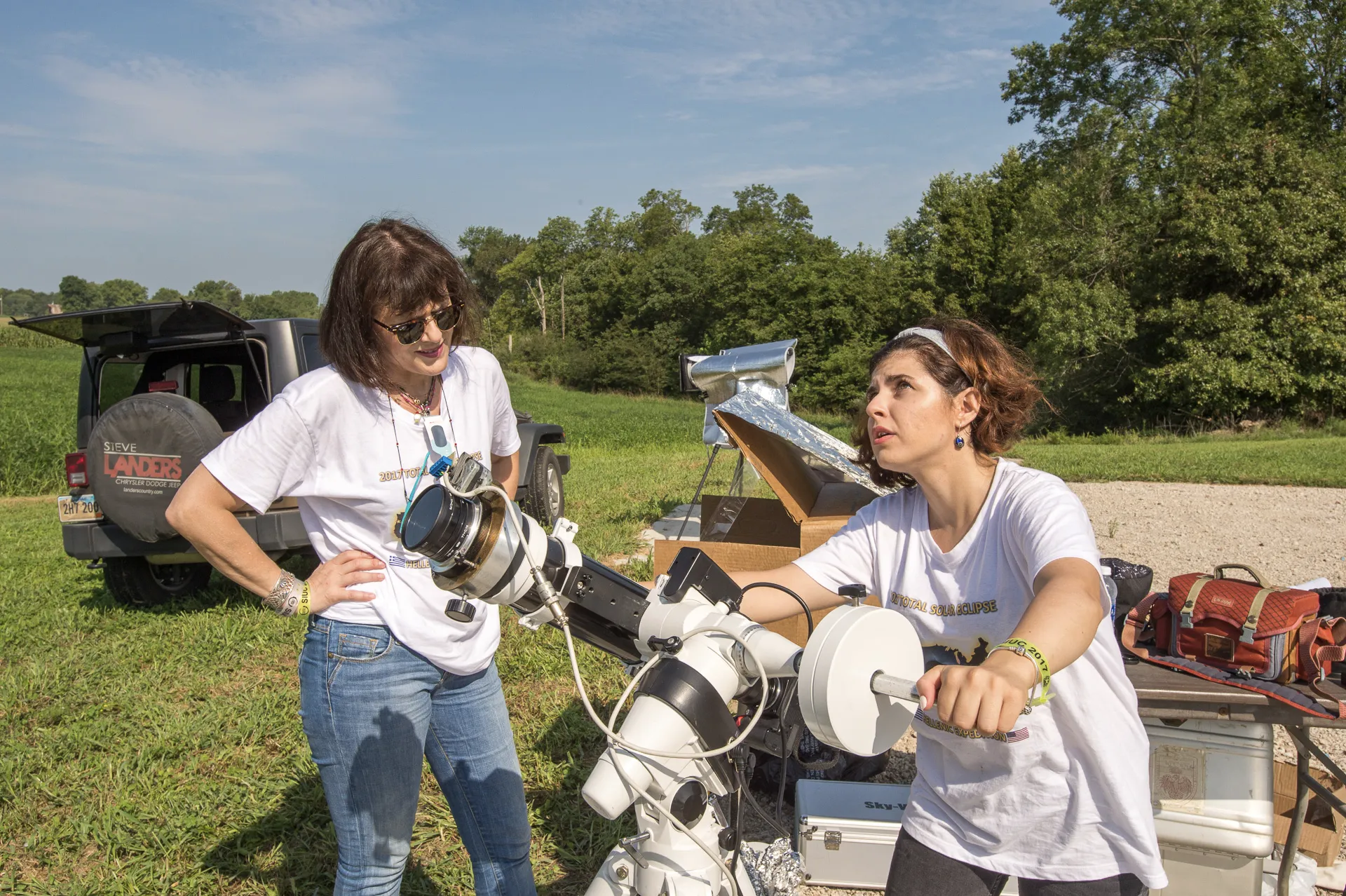
Crossroads Eclipse Research Workshop 2024
April 5 – 8, 2024 at SIU Carbondale
On Monday, April 8, 2024 a total solar eclipse path will stretch across North America with the centerline of totality going right through Carbondale Illinois. We will experience 4 minutes and 9 seconds of totality on the campus of Southern Illinois University Carbondale (SIUC).
The Crossroads Eclipse 2024 Research Workshop (CERW2024) has been established to facilitate and enrich research opportunities in solar science and citizen science. SIUC has established research and astrophotography observation areas at the SIU Farms Astronomy Observation Area also known as the Dark Site, and on the main campus for workshop participants. Participants are asked to present on their research project and are requested to submit brief abstracts for either talks and/or poster presentations. Selected presentations will be made at SIU Carbondale on April 6, 2024*. Posters will additionally be displayed at the Crossroads Astronomy Science and Technology Expo to be held April 7-8 at SIUC.
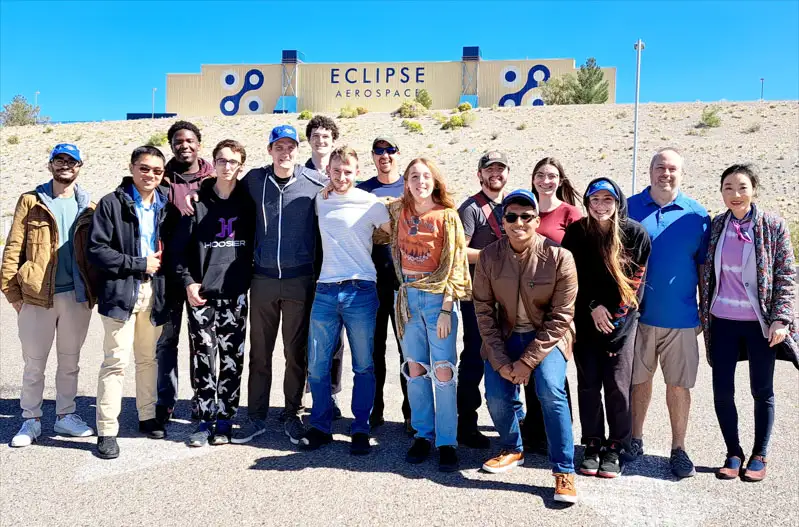
From the University of Hartford are Dr. Paul Slaboch, Dr. Ying Yu, Professor Enrico Obst, Madeline Adam, Isaac Akyigit, Alejandro Ayala, Jessica Camarillo, Andrew Esteves, Spencer Freedman, Sierra Hill, Jonathan Ho, Andrew Krebsbach, Drew Lauzier, David Ngethe, Emmi Nunes, Christian Piscitelli, and Andrew Rittenberg. From Tunxis; Professor Art Horn and Valkyrie Fleischman-McGarrah.
UHart/Tunxis NEBP Team
The UHart/Tunxis NEBP team is a collaborative and diverse group of students and faculty from the University of Hartford and CT State Community College Tunxis. Our group consists of 15 students across all years from first to fourth and from a variety of different educational backgrounds including aerospace, mechanical, electrical, computer, and robotics engineering, electromechanical engineering technology, meteorology, and physics. The group is focused on learning about eclipses and high-altitude ballooning, systems integration and communications, and payload development.
Our team will be sending aloft a large-scale weather balloon to record various atmospheric properties both before, during, and after a total solar eclipse. We will also be recording the eclipse from an altitude of approximately 75,000 ft and will attempt to livestream the event. A separate onboard payload will record the eclipse in 360 deg views and will be viewed after recovery. The final payload will be measuring the production of atmospheric ozone and radiation in the upper atmosphere before, during, and after the eclipse. This data will all go towards determining how a total solar eclipse affects the atmosphere.
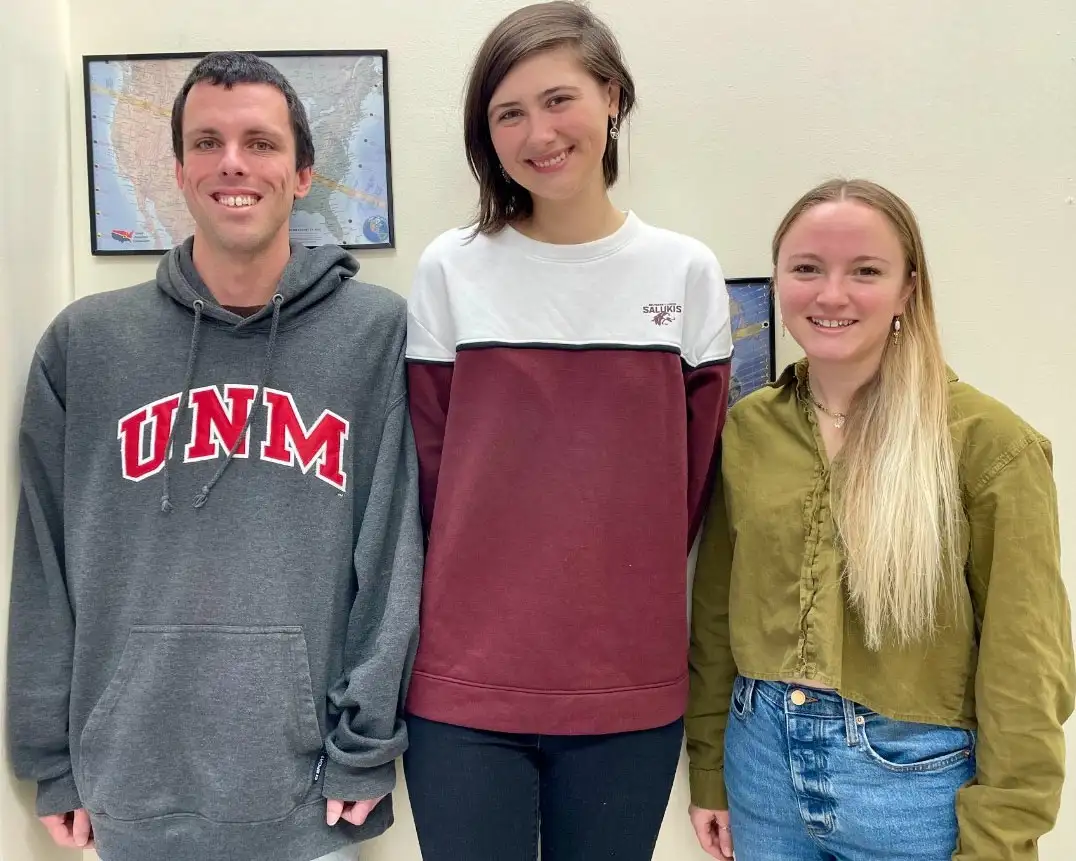
Left to right: Dan Mason, Alex Apgar (SIUC’21) and Sydney Shaner
University of New Mexico, Department of Earth and Planetary Sciences
Dan, Alex, and Sydney are all Ph.D. students in the Earth and Planetary Sciences department at the University of New Mexico and are very involved with outreach events and science communication with both academics and the general public. Their CERW project focuses on the potential for outreach opportunities during solar eclipses, and specifically studies best practices for engaging the lay public to help everyone better understand that science is never boring, and that scientific concepts don’t have to be a mystery!
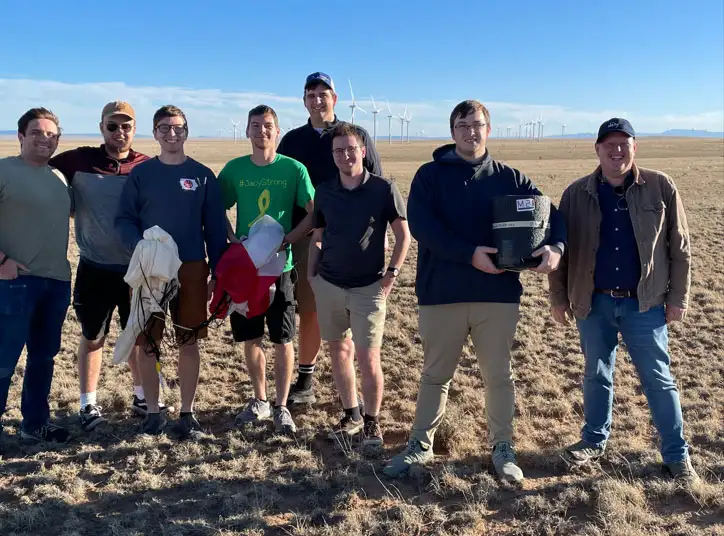
Left to right: Andrew Krall, Andrew Lewandowski, Brody Echer (Team lead), Mason Henry, Michael Tallman, Nick Goeckner, Brandon Beaver, Matthew Nelson (Our professor).
HABET Iowa State
We are a team of technology enthusiasts gaining knowledge of our planet’s high‐altitude conditions. For over twenty years, HABET has been researching and developing technology to record and document many aspects of the troposphere and stratosphere. Our mission statement, ‘To advance high‐altitude technology through focused research and development.
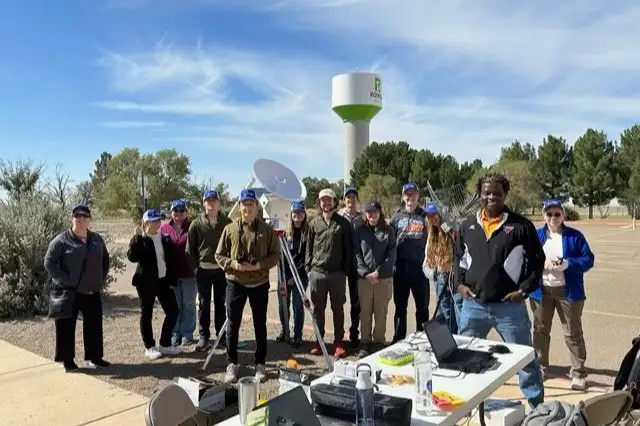
Ten students and four mentors traveled to Roswell, New Mexico for the October 14, 2023 annular eclipse. They had a successful video streaming high altitude balloon flight and recovery and a wonderful annular eclipse viewing experience. Mentors: Kendra Sibbernsen (MCC), Michael Sibbernsen (MCC), Derrick Nero (UNO), Karen Stelling (UNL) Students: Joel Murch‐Shafer, Andrew Duweling, Kaleb Reiser, Amber Tannehill, Alex Lopez, Tiegan Ries, Hailey Anderson, Emma Walter, Nicholas Wayman, Vince Orsi
Nebraska High Altitude Ballooning Team
The Nebraska High Altitude Ballooning Team is comprised of a multi-institutional crew including mentors from Metropolitan Community College (MCC) in Omaha, the University of Nebraska – Omaha (UNO), and the University of Nebraska – Lincoln (UNL). One strength of the Nebraska team is the experience and collaboration of the mentors. Another strength is the enthusiasm and participation from the students in the Aerospace (AXP) Club at UNL and Big Red Satellite group, which includes local middle school and high school students. For the total solar eclipse, the team is planning to travel to Carbondale, Illinois. In addition to the video streaming NEBP balloon, we plan to fly a second balloon to include student-designed experimental payloads. These designs include a muon detector, an experiment that combines art and engineering, and ultraviolet detectors.
Contact Events and Outreach for questions at 618-536-7751 or email conferenceservices@siu.edu.
